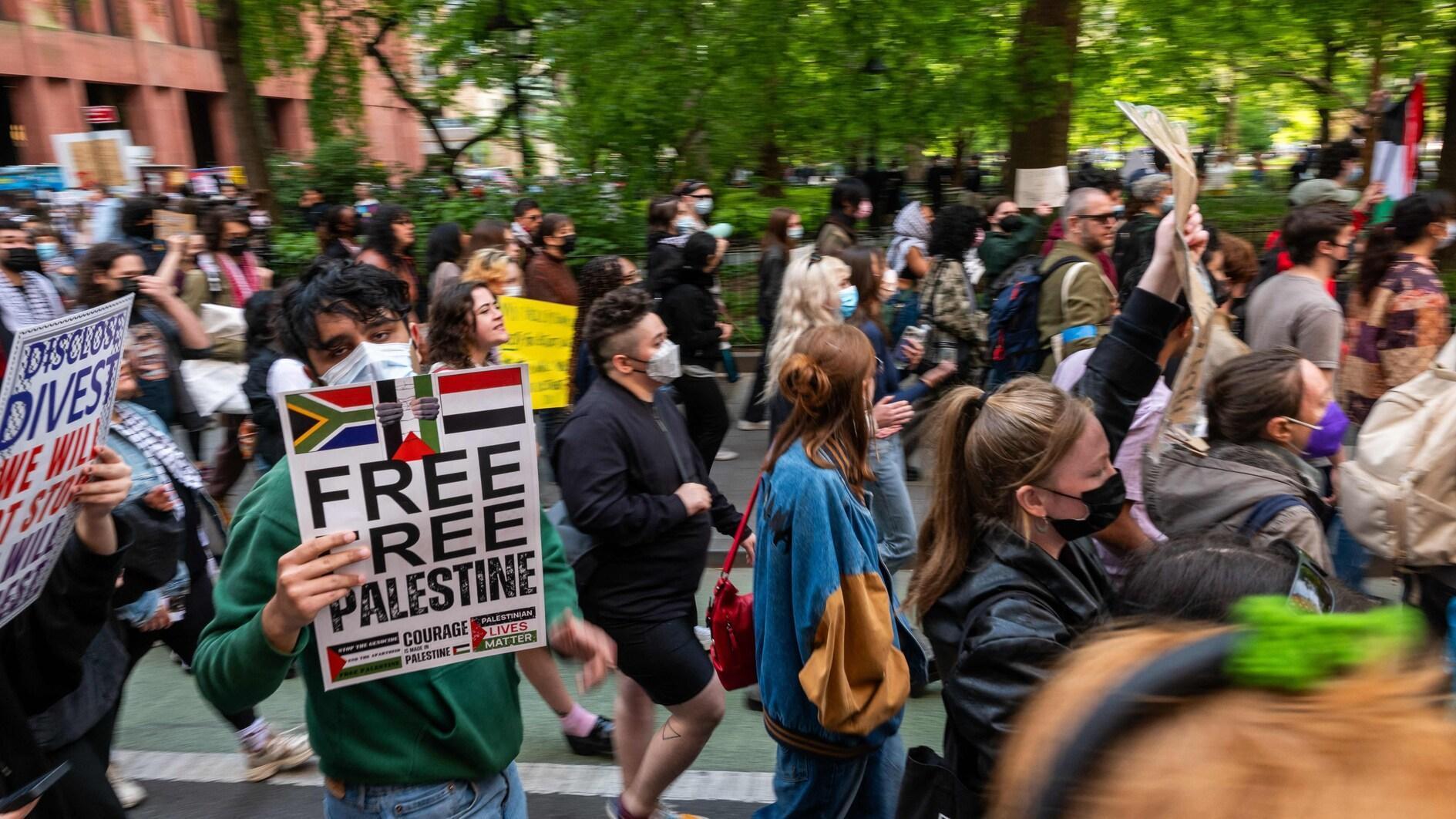
The support extended to Israel during the Gaza war has sparked widespread protests across U.S. universities, underscoring both the potency of student activism in influencing Washington's actions and its symbolic resonance in aligning with “the right side of history,” Turkish students in the U.S. have expressed.
Demonstrators have gathered on at least 40 U.S. university campuses since April 17, often erecting tent camps to protest against the soaring death toll in the Gaza Strip and Washington’s support to Israel.
Nearly 2,000 people have been detained. In recent days, police have forcibly dismantled several student sit-ins, including one at New York University at the request of its administrators.
Speaking to Daily Hürriyet, a group of Turkish students studying at American universities expressed confidence in the protests' capacity to prompt policy shifts in Washington, despite acknowledging the time required for tangible outcomes.
“I think it is very important, both symbolically and practically, that protests have started and continued in almost every American university. We know of many historical events in the past where it started from universities and resonated, like in Vietnam and South Africa,” a Turkish student said speaking on condition of anonymity.
“We will get results in that respect. It may take time, so be it. I think it is very valuable for the students of our university to be on the right side of history, and in that sense I think we are making our voices heard.”
Another student summarized the protesters' primary demand as the cessation of university endowments and donations being invested in Israeli companies through capital funds.
"Just the endowment fund of Columbia University is around $14 billion. Therefore, if students succeed in their demands, companies trading on the Israeli stock market or those supporting Israel in any form are in for tough times,” he said.
The continuity of the protests hinges on several factors, he said, noting that firstly, the level of police brutality and the response from universities will play a crucial role.
Students also stress that if authorities persist in intolerant and aggressive behavior, there is a likelihood of not only pro-Palestinian groups but also those opposing police violence taking to the streets, as seen in previous protests.
“Secondly, the extent of involvement from opposing groups will influence the course of events. If the frequency and intensity of such incidents increase, we may witness their repercussions in the protests.”
One student predicted that the duration and scale of these actions will escalate unless the intensity of the occupation diminishes, and university administrations backtrack. Generally, the demonstrations progress as a joint effort between students, faculty members, and supported by the local community, he said.